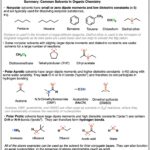Understanding How To Compare House Comps is crucial for both buyers and sellers in the real estate market. Comparable sales, or “comps,” are recently sold properties similar to the one you’re interested in. Analyzing comps helps sellers set competitive listing prices and empowers buyers to make informed offers. This guide provides a comprehensive breakdown of how to effectively compare house comps.
Key Factors for Comparing House Comps
Several factors significantly influence the comparability of properties. To ensure accurate comparisons, consider the following:
Location and Neighborhood
Proximity is paramount. Ideally, comps should be within a one-mile radius, extending to five miles if necessary. Neighborhood characteristics like school districts, amenities (parks, shops, restaurants), walkability, and access to transportation should mirror the target property.
Size and Layout
Square footage is a primary determinant of value. Comps should have similar square footage, and the layout should be comparable. Consider the number of bedrooms and bathrooms, as these directly impact value. Price per square foot is a useful metric for comparing properties with slight size differences.
Age and Condition
The year built is important, as newer homes generally command higher prices. Aim for comps built within a five-year range of the target property. The overall condition, including necessary repairs and updates, significantly affects value. A well-maintained home will be worth more than one requiring significant renovations.
Upgrades and Renovations
Modernized kitchens, updated bathrooms, and other significant renovations add value. Carefully compare the features and upgrades of comps to the target property, noting any differences that could impact price.
Time of Sale
Recent sales data is most relevant. Focus on properties sold within the past three to six months. In a rapidly changing market, an even shorter timeframe might be necessary.
Finding Real Estate Comps
Utilizing various resources can help you effectively identify relevant comps:
Real Estate Websites
Websites like Redfin allow you to filter by sold properties, specifying location, timeframe, property details, and features to find suitable comps.
Online Valuation Tools
Automated valuation models (AVMs) provide estimates based on available data. While not as precise as professional appraisals, they offer a starting point for understanding market value.
Real Estate Agents
Agents have access to the Multiple Listing Service (MLS), providing comprehensive data on sold properties. Their expertise in the local market is invaluable for identifying and interpreting comps.
Public Records
County property records often include past sales data. While this information might not be as current as MLS data, it can be a helpful supplementary resource.
Foreclosure and Auction Sales
Distressed sales can offer insights into market value, but remember that these properties often sell below market value due to their circumstances.
Who Benefits from Comparing Comps?
A variety of stakeholders utilize comp analysis:
- Real Estate Agents and Brokers: Use comps for pricing strategies and market analysis.
- Home Sellers: Determine appropriate listing prices and highlight property strengths.
- Homebuyers: Assess fair market value and formulate competitive offers.
- Home Appraisers: Determine a property’s fair market value for lending purposes.
Frequently Asked Questions about House Comps
Q: What’s the ideal number of comps to analyze?
A: Three to five comps provide a good basis for comparison.
Q: Can I use active listings as comps?
A: No, active listings reflect asking prices, not actual sales prices. Sold data is most reliable.
Q: Why do comp prices vary within a neighborhood?
A: Variations can be due to condition, upgrades, lot size, views, and market fluctuations.
Conclusion
Comparing house comps is an essential step in navigating the real estate market. By understanding the key factors and utilizing available resources, both buyers and sellers can make informed decisions and achieve their real estate goals. Consulting with a qualified real estate professional can provide personalized guidance and ensure a successful transaction.

